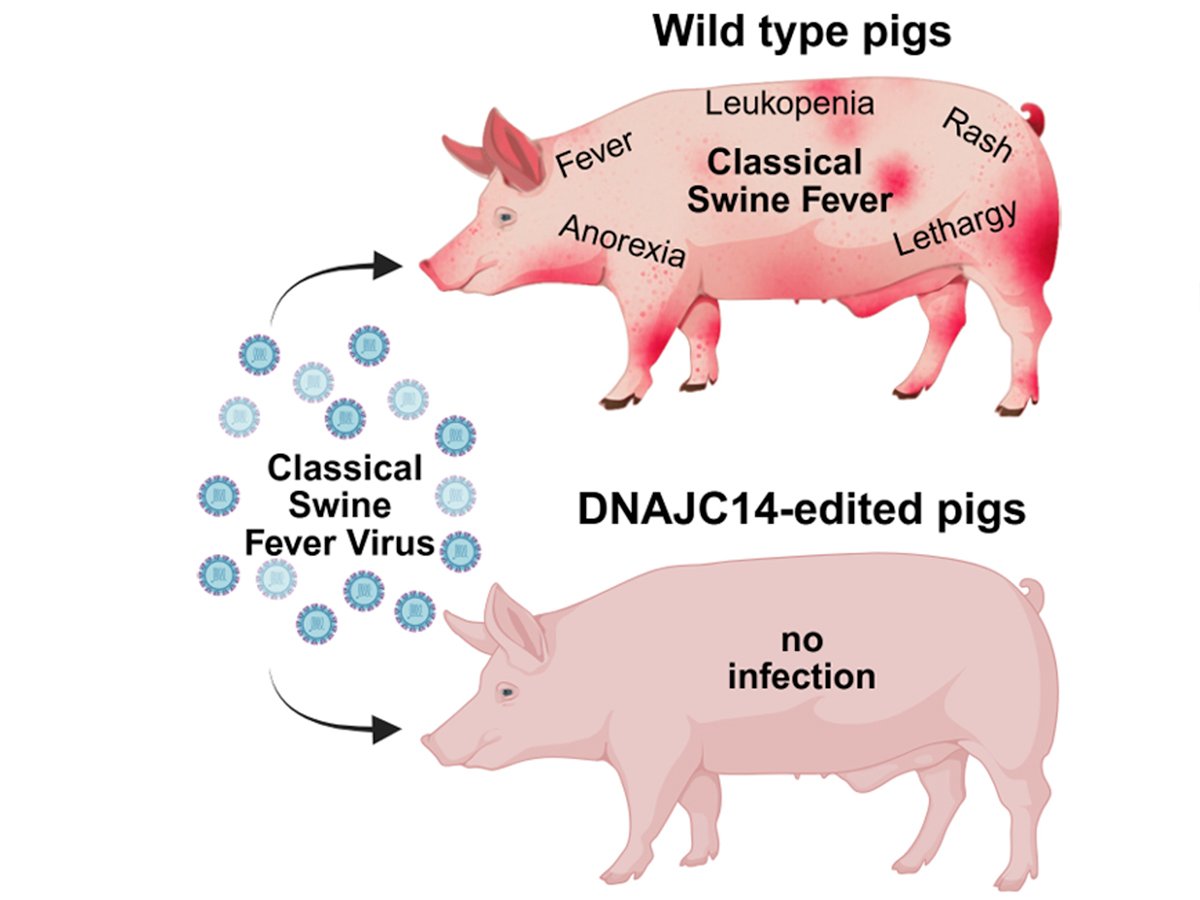The Conservative government is under growing pressure to spend hundreds of millions of dollars to effectively end tobacco production in Canada within five years.
Southern Ontario’s 1,000 tobacco farmers are heavily in debt, facing sharply reduced demand and acreage and increasingly convinced their industry is doomed.
In a recent appearance before the House of Commons agriculture committee, Ontario Flue-Cured Tobacco Growers’ Marketing Board chair Fred Neukamm said the industry is suffering from government taxation on their product, health policies aimed at ending tobacco use, tobacco smuggling and a lack of support from cigarette manufacturers that can get their raw tobacco elsewhere.
Read Also

Gene edited pig resistant to classical swine fever
British scientists have discovered a gene edit that could provide resistance to classical swine fever in pigs and Bovine Viral Diarrhea in cattle
“We see our request (for government help) as a logical extension of those government policies,” he said.
“The stated goal of those policies has been to aggressively reduce the use of tobacco products and those policies have worked. That is why we find ourselves in this terrible situation. We believe it should also be government policy to help farmers make the adjustment out of tobacco production.”
At the cabinet table and in Conservative caucus, Haldimand-Norfolk MP Diane Findley has been trying to convince the government it has a responsibility to the producers, said Conservative MP James Bezan.
Most of Ontario’s producers are in her riding.
“I know that Ms. Findley has been advocating at cabinet and to the prime minister and caucus for a buyout for the industry,” Bezan told the industry representatives.
It is not clear how much it would cost. Neukamm said the amount per farmer would be negotiated, taking into account the average $400,000 debt of farmers, the value of quota and their need to purchase equipment to move to a new crop.
“We have submitted an initial proposal to the government,” he told MPs. “There’s some key principles within that proposal. It is a total exit over a defined period of time. At some point, we believe tobacco production will come to an end, be that in two years, five years.”
The proposal is that the government commit significant funds this winter so that as many as two-thirds of growers can get out of the business next year. Since 1998, quota-regulated production has fallen to 55 million pounds from 150 million lb.
Brian Edwards, president of the Tobacco Farmers in Crisis group organized several years ago to lobby for government aid to the Ontario industry and the few growers left in Quebec and Prince Edward Island, conceded the point that tobacco kills.
“The health policy is right. If you consume tobacco probably you will get sick. Tobacco policy for taxation is here to stay.”
But industry leaders asked MPs to remember that farm families are at the centre of the industry’s demise.
Mark Bannister, a Haldimand farmer, said he has farmed for 26 years, tried six alternative crops that all failed and survived only because of tobacco.
“My land has been in my family for 250 years and I want to keep that land,” he said. “I’ve got a lot of debt and I hope there’s a future for my son or my grandson, but it’s going to take some new federal ag policy, period. At my age, I’m too old to start again.”
He said government response will decide his family future.
“If I can see commitment from this federal government to turn this around with some support for the Canadian farm family, yes, I’ll turn my son and my grandson loose and not before,” said Bannister.
“It’s too costly. It’s too hurtful.”














